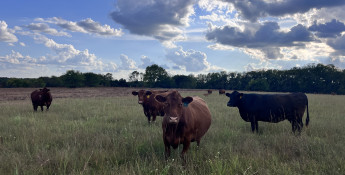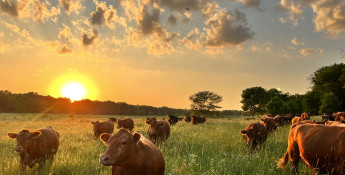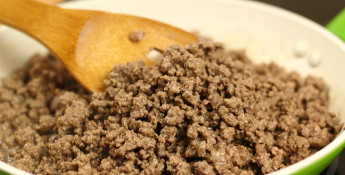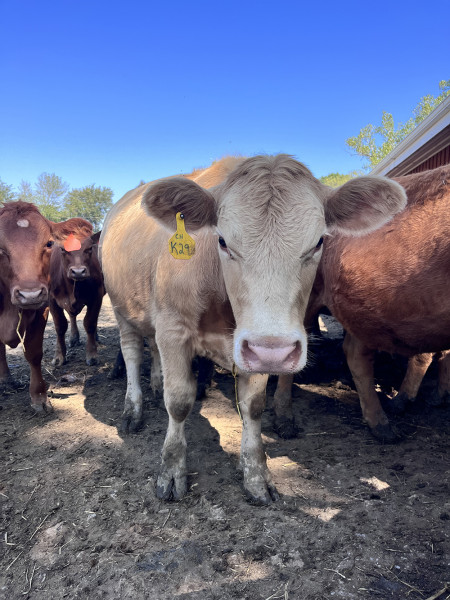By Brandi Buzzard on November 20, 2023
Three Lies about Beef and Cattle Ranching
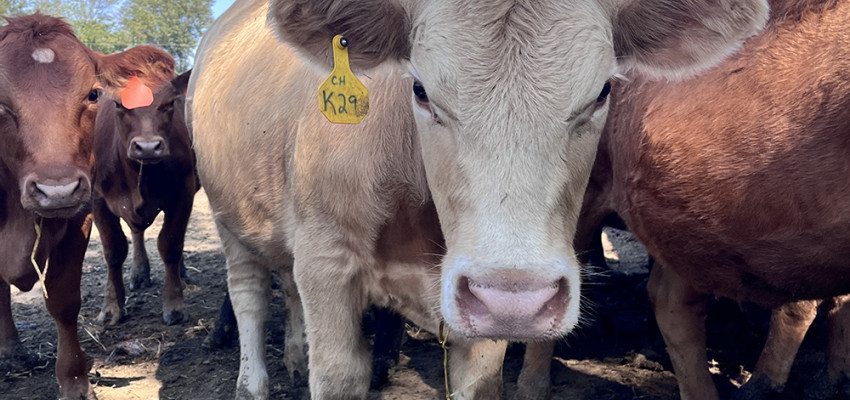
I am a big fan of the enneagram personality tool — have you heard of it? The enneagram tool is based on the idea that each person has a unique and innate personality structure, or "essence," that shapes the way they see the world and themselves. I discovered my type at a retreat for rural women entrepreneurs a couple of years ago, and it dramatically changed how I think, work, plan and communicate. I highly encourage anyone reading this to investigate the tool and find out your type – it will change your life. If you’re wondering what type I am, I’m Type 8 and some of the defining characteristics of eights are independence, self-reliance and being straightforward.
Those traits manifest in me because I cannot stand misinformation and feel the need to correct it when I see it (which, in the online world, is often). And while I won’t go out of my way to correct misinformation about insignificant things such as dishwasher brands or the reason behind daylight saving time, I will speak up when I see misinformation surrounding cattle and beef. Hence, here are three common lies you’ve probably heard about beef or cattle and the actual truth behind them.
Lie 1: Beef is bad for your diet.
In 2012, The Pennsylvania State University released the Beef in an Optimal Lean Diet (BOLD) study to show that lean beef can be part of a heart-healthy diet. BOLD showed that LDL-cholesterol (the “bad” kind) decreased 10 percent in study participants who consumed lean beef daily. This came as no surprise to me, as lean beef is a good or excellent source of 10 essential vitamins and nutrients and packs a powerful punch of ~25 grams of protein per 3-ounce serving. My family enjoys beef multiple times a week – it fuels our busy lives and keeps our bellies full while providing us with valuable nutrition.
Lie 2: Cattle are hurting the climate.
A not-so-secret fact about me is I’m a big, ole science-loving nerd (probably plays into that truth-seeking portion of my psyche). When it comes to science, climate and agriculture, the Environmental Protection Agency is our best source of science and that agency has stated, consistently, that cattle are responsible for less than three percent of U.S. greenhouse gas emissions. Comparatively, transportation and industry are both roughly 10 times that amount so when we get down to the numbers, it’s quite a stretch to blame climate change on my bovine buddies. Out in the pasture, cows are contributing to conservation by grazing on lands that mostly aren’t suitable for growing crops, thereby converting human inedible cellulose into nutritious protein while storing carbon in the soil through carbon sequestration. I’m not demonizing cars or boycotting travel, but I am asking that we take a more realistic look at the behaviors in our lifestyles that have significant impacts on our climate.
Lie 3: Beef is only for steak and burger lovers.
Even though those are the most known types of beef, there’s so much more to beef than just steak and burgers! Don’t be intimidated by the cuts you see on the grocery store shelves – sites like BeefItsWhatsForDinner.com are chock full of cuts and flavorful recipes to adorn everyone’s table. Why not try out stew meat for kabobs or a hearty roast on a cold evening? We are full into crockpot season on our ranch, so I’m preparing this roast recipe almost weekly – if you try it and like it, be sure to let me know!
So, there you have it – three myths effectively debunked, and my Type 8 soul is feeling a little better for being able to have “scratched the itch” of correcting misinformation.
I wish you all nothing but blessings and abundance as we move toward the last six weeks of the year. May you all have a peaceful holiday season, however you wish to observe it.

